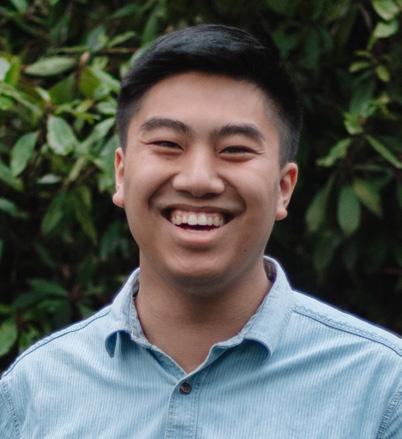
3 minute read
Spare Change
By NINO PAOLI Columnist
How do you feel knowing that you’re paying for someone else’s therapist?
Advertisement
Well, you will be. Starting in the fall and throughout the academic year 2023-24, a sports psychologist will be paid for by anyone taking in-person classes on Oregon State University’s Corvallis campus.
In February, the Associated Students of OSU Student Fee Committee held a public meeting during their final deliberations of budget requests for the next academic year from student fee-funded entities, one being Intercollegiate Athletics.
During the deliberations, the request that an additional sports psychologist – student-athletes have one sports psychologist already – was approved by the SFC, and subsequently, the ASOSU Congress approved this SFC decision.
To have a sports psychologist, whose salary comes directly out of all students’ pockets, but is only accessible to student-athletes, isn’t fair.
When the fee request was first voted through by the SFC, student-athlete advocates for funding an additional sports psychologist said that the one psychologist they have was spread too thin. But, this is the nature of mental health resources on campus in general.
Counseling & Psychological Services availability issues remain a problem, as students in acute mental crisis have to wait weeks to months for an appointment.
In a Reddit thread about the sports psychologist’s decision, students shared frustrations about not being able to get timely help for their mental health crises and needs through CAPS.
The prioritization of making mental health resources more accessible to a select community at OSU implicitly values said select community over everyone else –requiring a student fee to reinforce this social inequity is just salt in the wound.
“I don't like the implication that because they're student-athletes (...) their struggles are more important than everyone else's,” said Emily Erving, a fourthyear political science student immediately following the approval of the sports psychologist by the SFC.
But, in a way, this is exactly what the additional sports psychologist position does.
Jared Pratt, a political science major and the Recreational Sports SFC Representative, said he has struggled with mental illness and has had problems with CAPS wait times as well; and was offended when student-athletes had spoken about the stress they are under during the public meeting, and argued every student is under stress and being a student-athlete is their choice.
Though there has been controversy regarding whether or not students should have to pay for a sports psychologist, SFC Intercollegiate Athletics Liaison and ASOSU Vice President-Elect Dakota Canzano said that not all students use other student feefunded resources.
“How I also think of it is… all the resources that we fund on campus are important and are needed for many students because a variety of students use each resource, but also not every single person will be able to use each resource,” Canzano said. “Not every student is a parent that will be using the child care resources, and not every student is going to the Memorial Union.”
The additional sports psychologist is the only student fee-funded resource that poses problems of accessibility. Yes, not every student has a family and may need help from the Family Resource Center –though every student can become a parent – and yes, not everyone will use the MU to study; but no
Julie Weber, a second-year computer science student said although mental health is extremely important, she thinks it’s unreasonable to ask students to pay for a mental health service that they don’t have access to.
“This decision tells me that athletics comes first,” Weber said.
During the SFC deliberation, SFC MU Liaison Noah Roberts employed the ‘students-athletes are students first’ reasoning.
“If I can help in any way, say even just one person's life to the creation of this position, then to me it will have been worth it,” Stoll said.
Many students do not share this philanthropic mindset; especially when student-athletes on average receive more tuition aid than anyone else at OSU.
According to a U.S. News article, “the average need-based scholarship or grant awarded to first-year students at Oregon State University was $12,897… The average non-need-based scholarship or grant awarded to first-year students at Oregon State University – excluding any athletic scholarships, if applicable –

On the other hand, a College Factual article says the average sports-related tuition aid awarded to student-athletes is around $19,323 per athlete, not counting the 2020 NCAA rule change allowing athletic departments to pay athletes up to $5,980 per school year depending on academic performance.
“I have to work to be able to pay for my own therapist and go on my own time through a private therapist,” Pratt said. There is no clear direction on how to make mental health more accessible on campus, but this undoubtedly is not the ideal course of









